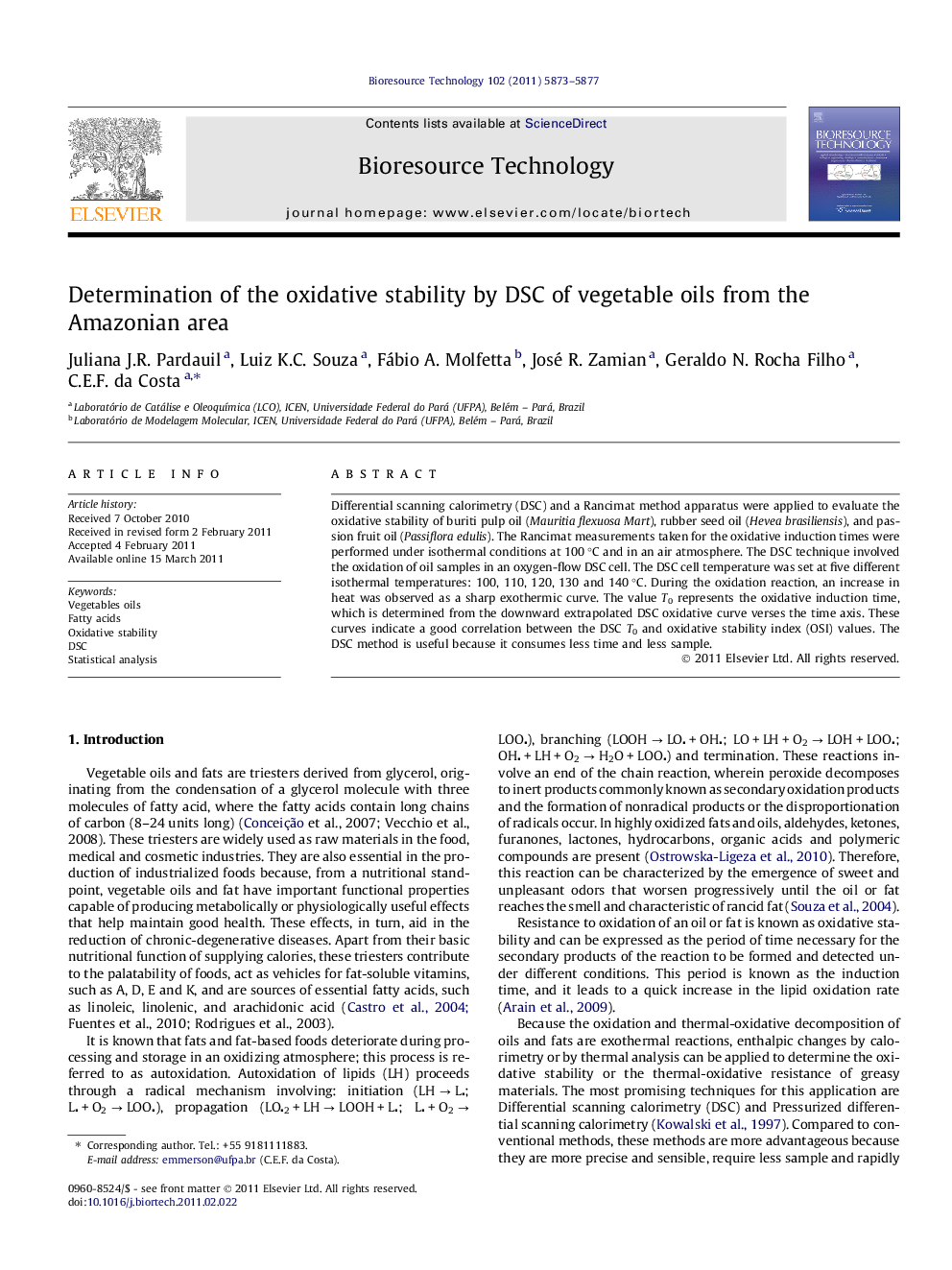| Article ID | Journal | Published Year | Pages | File Type |
|---|---|---|---|---|
| 681978 | Bioresource Technology | 2011 | 5 Pages |
Differential scanning calorimetry (DSC) and a Rancimat method apparatus were applied to evaluate the oxidative stability of buriti pulp oil (Mauritia flexuosa Mart), rubber seed oil (Hevea brasiliensis), and passion fruit oil (Passiflora edulis). The Rancimat measurements taken for the oxidative induction times were performed under isothermal conditions at 100 °C and in an air atmosphere. The DSC technique involved the oxidation of oil samples in an oxygen-flow DSC cell. The DSC cell temperature was set at five different isothermal temperatures: 100, 110, 120, 130 and 140 °C. During the oxidation reaction, an increase in heat was observed as a sharp exothermic curve. The value T0 represents the oxidative induction time, which is determined from the downward extrapolated DSC oxidative curve verses the time axis. These curves indicate a good correlation between the DSC T0 and oxidative stability index (OSI) values. The DSC method is useful because it consumes less time and less sample.
Research highlights► DSC and Rancimat method were used to evaluate the oxidative stability of three oils. ► Strong correlations were found between the values of DSC T0 and Rancimat ► DSC can be indicated as method for assessing the oxidative stability of oils.
